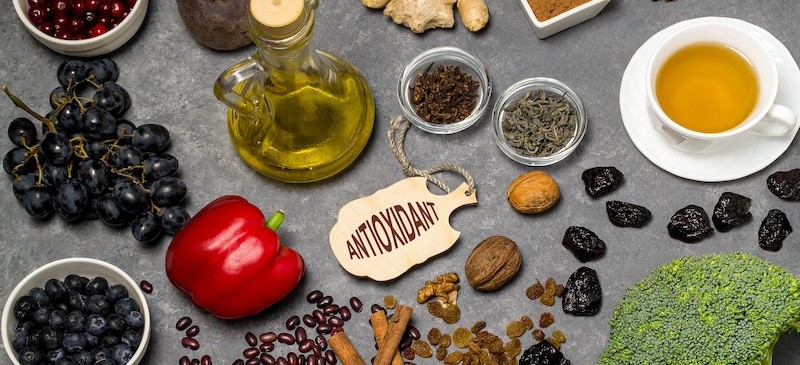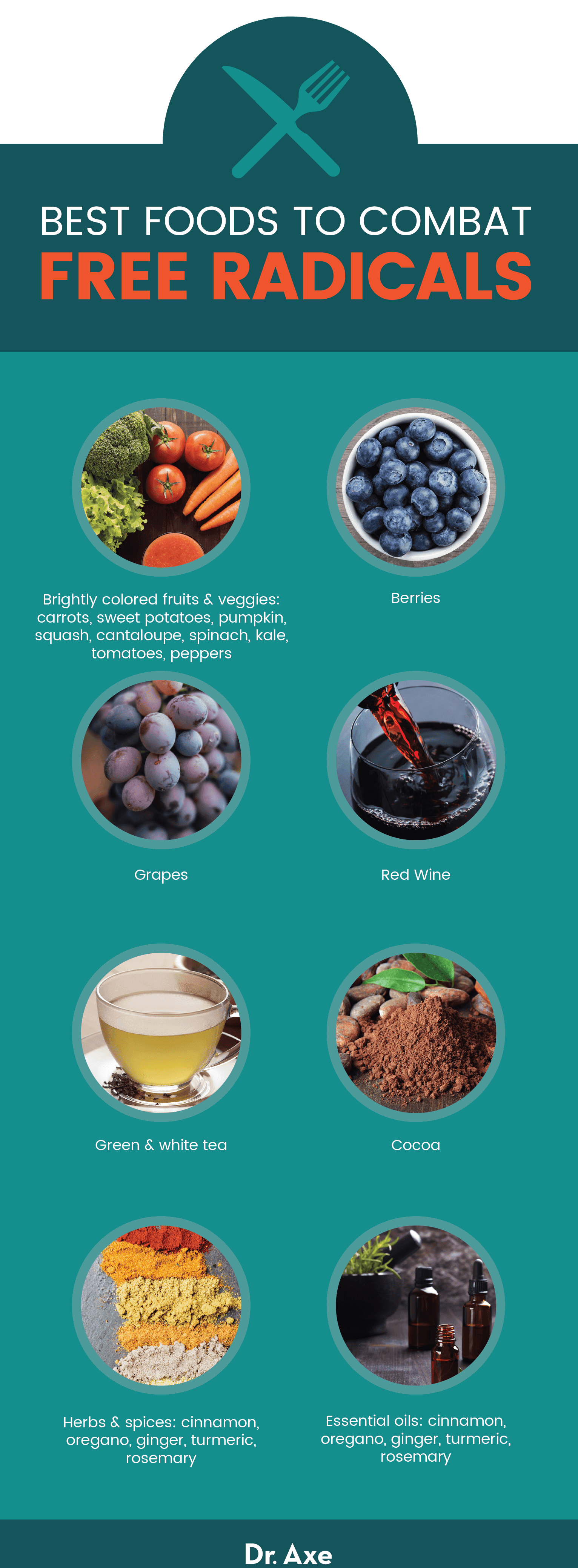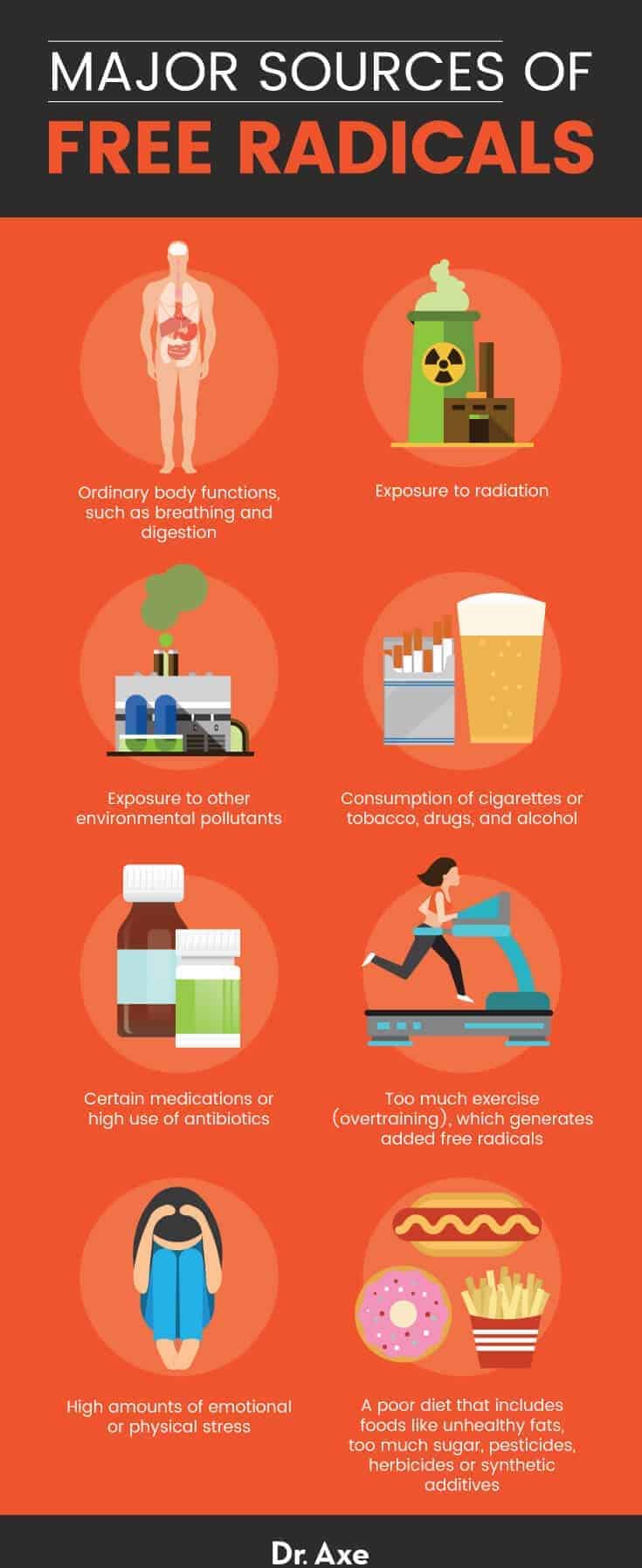This Dr. Axe content is medically reviewed or fact checked to ensure factually accurate information.
With strict editorial sourcing guidelines, we only link to academic research institutions, reputable media sites and, when research is available, medically peer-reviewed studies. Note that the numbers in parentheses (1, 2, etc.) are clickable links to these studies.
The information in our articles is NOT intended to replace a one-on-one relationship with a qualified health care professional and is not intended as medical advice.
This article is based on scientific evidence, written by experts and fact checked by our trained editorial staff. Note that the numbers in parentheses (1, 2, etc.) are clickable links to medically peer-reviewed studies.
Our team includes licensed nutritionists and dietitians, certified health education specialists, as well as certified strength and conditioning specialists, personal trainers and corrective exercise specialists. Our team aims to be not only thorough with its research, but also objective and unbiased.
The information in our articles is NOT intended to replace a one-on-one relationship with a qualified health care professional and is not intended as medical advice.
Free Radicals: Effects on Health and How to Combat Them
October 19, 2023

Many people have heard that foods with antioxidants protect us from free radical damage, which is responsible for many of the effects of aging on both the body and mind. But what exactly are free radicals, why are they bad and where do they come from?
When antioxidant levels in the body are lower than those of free radicals, due to factors like poor nutrition or lots of incoming toxins, the immune system is overloaded, and aging occurs more rapidly. In order to know how to best protect yourself from health problems linked to free radical damage — and there are many — it helps to understand what types of lifestyle habits or dietary choices cause them to accumulate in the first place.
As you’ll learn below, a diet rich in a variety of plant foods along with things like exercise and stress reduction help reverse the destructive oxidation process.
What Are Free Radicals and How Do They Cause Damage?
The definition of free radicals is “uncharged molecules (typically highly reactive and short-lived) having an unpaired valence electron.” According to the Pharmacognosy Review, “reactive oxygen species and reactive nitrogen species are generated by our body by various endogenous systems, exposure to different physiochemical conditions or pathological states.”
Free radicals can be very harmful, but their production within the body is certainly not abnormal or even entirely bad. Despite contributing to the aging process, free radicals are also essential players in the immune system. Our bodies produce free radicals as byproducts of cellular reactions, metabolism of foods, breathing and other vital functions.
The liver produces and uses free radicals for detoxification, while white blood cells send free radicals to destroy bacteria, viruses and damaged cells.
Why are free radicals thought to be dangerous then? As naturopath Dr. Stephen Byrnes explained, free radicals are unstable molecules, meaning they’re always on the lookout for chemical components that other cells have but that they themselves are missing.
Electrons exist in pairs, and free radicals are missing an electron. This is their weapon of sorts: Free radicals “react” with just about anything they come into contact with, robbing cells and compounds of one of their electrons. This process makes the affected (“robbed”) cell or compound unable to function normally and turns some cells into electron-seeking muggers themselves, leading to a chain reaction in the body and the proliferation of even more free radicals.
The clean-up crew, our immune system’s “soldiers,” lose their control and end up marauding and pillaging throughout the body, destroying healthy cells and tissues.
What Is Oxidative Stress, and How Do Antioxidants Fit In?
Free radicals ultimately harm and age the body over time because they damage DNA, cellular membranes, lipids (fats) stored within blood vessels and enzymes. Normally, free radicals — or as they’re also commonly referred to, reactive oxygen species and reactive nitrogen species — live in balance with antioxidants in the body. It’s when this balance is disturbed, due to low intake of antioxidants and accumulation of free radicals, that accelerated aging occurs.
The damage done by free radicals in the body is known as oxidation:
- Oxidation is the same process that browns an apple or rusts metal. Rampaging free radicals react with compounds in the body and oxidize them. The amount of oxidation in the body is a measure of oxidative stress.
- High levels of oxidative stress affect every organ and system in the body and have been linked with everything from Alzheimer’s disease, arteriosclerosis, cancer and heart disease to accelerated aging, asthma, diabetes and leaky gut syndrome. Oxidative stress is believed to lead to the development of the most prevalent chronic diseases and disorders killing adults today, especially heart disease, cancer and diabetes.
- Oxidation lays the foundation for the proliferation of free radicals and damage to cells, muscles, tissue, organs, etc.
Antioxidants counteract free radicals because they’re essentially “self-sacrificing soldiers.” As Byrnes explained, they donate an electron to free radicals to “calm” them down and are consumed in the process.
Our bodies use antioxidants to lessen the impact of free radicals, and our diets give us the tools to do so. Glutathione is considered the most important “master” antioxidant and is the liver’s major weapon. It’s created from the amino acids cysteine, glycine and glutamic acid.
Other major antioxidants that have been identified include some you’re likely familiar with, such as vitamins A, C and E; beta-carotene; bioflavonoids; CoQ10; selenium; and zinc. Copper and manganese have roles in antioxidant production as well.
Many other phytochemicals from plants also seem to play antioxidant roles. We usually think of these chemicals — like lycopene, tannins, phenols, lignans or quercetin, for example— as antioxidants even though the body doesn’t make them on its own. Once consumed they help reduce inflammation and the effects from oxidation.
Here are some of the roles that antioxidants have:
- The antioxidant lipoic acid repairs essential enzymes in the body.
- Melatonin is an important antioxidant linked to regulation of the circadian rhythm (sleep/wake cycle).
- Even cholesterol can have antioxidant benefits. “Good” HDL cholesterol in some ways acts as a powerful antioxidant by repairing damaged blood vessels and reducing oxidation, meaning the addition of oxygen to low-density lipoproteins (LDL or “bad” cholesterol). This helps stop the buildup of fatty plaque on artery walls (atherosclerosis) and keeps blood flowing to the heart.
Our ability to produce antioxidants in the body declines with age. The reason that antioxidants are often touted as “anti-aging” compounds is because they help protect us from age-related diseases, which are caused in part by free radicals and inflammation.
While we can never entirely stop the aging process, as diet high in antioxidant foods helps us age much more gracefully — living longer, healthier, more vibrant lives.
Causes
What causes free radicals to proliferate? Basically, the typical “Western lifestyle” — with its processed foods, absence of healthy whole foods, reliance on medications and antibiotics, common use of alcohol or drugs, environmental pollutants, and high stress levels.
Free radicals are generated due to oxidation and when toxins are broken down in the body. The liver produces free radicals as it breaks down compounds and removes them.
The major sources of free radicals include:
- Ordinary body functions, such as breathing and digestion
- Exposure to radiation
- Exposure to other environmental pollutants
- Consumption of cigarettes, tobacco, drugs and alcohol
- Certain medications or high use of antibiotics, which leads to antibiotic resistance
- A poor diet that includes foods like unhealthy fats, too much sugar, pesticides, herbicides or synthetic additives. Many processed and refined foods contain oxidized fats that add free radicals to the body. Excessive amounts of sugar and sweeteners are other sources of free radical growth that contribute to aging, weight gain and inflammation.
- Even too much exercise (overtraining) generates added free radicals
- High amounts of emotional or physical stress. Stress hormones (like too much cortisol) can generate free radicals.
Best Ways to Fight Free Radical Damage
1. Start Eating More Foods Rich in Antioxidants
One of the best defenses against free radical damage is consuming more antioxidants. Here are some the best antioxidant foods to eat:
- Brightly colored fruits and vegetables — Orange foods like carrots, sweet potatoes, pumpkin, squash and cantaloupe contain carotenoids that are beneficial for your skin and eyes. These antioxidant foods help reduce sunburn and wrinkles while protecting your vision. According to the International Dermal Institute, oxygen free radicals are implicated in the overall aging process and are responsible for photoaging, cancer and inflammation in the skin. Similarly to orange veggies, citrus fruits contain a compound called quercetin. Spinach and other leafy greens like kale are high in lutein, and tomatoes and red peppers contain lycopene, all of which have anti-aging effects.
- Berries, grapes and red wine — These deeply hued fruits are some of the highest in antioxidants, such as resveratrol. A study in the Journal of Agricultural & Food Chemistry found berries were an easy winner in the amount of antioxidants for the price, especially when you buy the organic kinds frozen. As an added bonus, berries also tend to be lower in sugar than other fruits and contain lots of fiber.
- Green and white tea — White and green teas are very minimally processed and contain less caffeine than coffee (or even other varieties of tea). They also contain a very high concentration of antioxidants called polyphenols that have been shown to have cancer-fighting properties.
- Cocoa —A study from Seoul National University found that cocoa has a higher antioxidant content than green tea, black tea and even red wine. But you want to make sure the cocoa or dark chocolate you eat is very minimally processed, such as the kinds that are a high percentage of cocoa (more than 65 percent or so) and labeled raw and organic.
- Herbs and spices— These include things like cinnamon, oregano, ginger, turmeric and rosemary. Additionally, essential oils made from the same plants can also be great sources of antioxidant and anti-inflammatory compounds.
While eating more antioxidant foods is a big step in the right direction, you also benefit from limiting intake of pesticide- and herbicide-laden foods (those that are not organically grown) and by avoiding too much sugar, refined oil or refined grains. Use natural, cold-pressed oils like coconut or olive oil, since heat oxidizes fats in refined oils, and be sure to limit intake of antibiotic- and hormone-laden foods, such as farm-raised meat or fish.
2. Avoid Toxin or Pollutant Exposure
Besides improving your diet, here are other ways to start reducing free radical damage:
- Avoiding environmental pollutants in water
- Reducing chemical exposure in household and cosmetic products, such as by purchasing those that are natural and made from essential oils
- Avoiding overuse of medications and antibiotics
- Reducing stress in your life
- Regularly getting moderate amounts of exercise. Keep in mind that while being sedentary is definitely not helping you to age any slower, overworking yourself isn’t either. Exhaustion, mental fatigue and burnout also cause the immune system and body more damage, so exercise but make sure to also give yourself rest days.
- Reaching and maintain a healthy body weight
- Trying to normalize blood sugar and cholesterol levels to prevent diabetes, heart problems and blood pressure changes

Will Supplements Combat Free Radicals?
According to some experts, there are literally thousands of different antioxidants in the human diet, and they exist in many different forms. Because of the complexities of how antioxidants work in the body to combat free radicals, some scientists believe that only in food form do phytonutrients or antioxidants interact beneficially with our bodies.
Author of “In Defense of Food,” Michael Pollan, calls this obsession with finding the magical and pivotal ingredient in foods “nutritionism” and “reductionist science” and believes that it actually promotes unhealthy eating. Looking at foods from the perspective of the specific nutrients they contain dissolves “distinctions between processed foods and whole foods,” Pollan says. It’s easier to post “contains essential vitamins and minerals” or “contains antioxidants vitamins C and E” on a box of processed cereal than it is to label a banana or a carrot in the same way.
Getting antioxidants naturally from whole foods and an unprocessed diet with a wide variety of fruits and veggies is typically recommended rather than from supplements. However, supplements can help with nutritional gaps, and if you purchase reputable, high-quality supplements, they can be beneficial.
Based on all of the information above, you can see that while it’s helpful to be aware of individual antioxidants and their benefits, the bigger goal regarding prevention of free radical damage is to focus on consuming a wide variety of nutrient-dense, whole foods. At the same time, it’s important to reduce the toxin load in your body by removing things like unnecessary medications, too much stress and pollutants from your life.
Precautions
With the invention of anti-aging supplements, experts now worry that people may rely on supplements to counteract unhealthy lifestyle choices and poor nutrition. There’s also the risk that consuming high doses of concentrated antioxidants from supplements may compromise the defensive role of free radicals in the immune system or have other problematic effects like interfering with proper exercise recovery.
The bottom line is that, according to studies, isolating specific antioxidants and consuming them from pills to lower free radicals isn’t as helpful compared to eating whole foods. Variety and interaction of many different antioxidants as they exist in food seems to be most beneficial for longevity and optimal health.
Final Thoughts
- Our bodies produce free radicals as byproducts of ordinary cellular reactions like breathing or other vital functions, in addition to exposure to pollutants, a poor diet, radiation, high amounts of stress and other toxins.
- Antioxidants help slow down the effects of free radicals and protect us from disease or signs of early aging. Antioxidant sources include plant foods like fruits or veggies, green or white teas, cocoa, red wine, spices, and herbs.
- The best way to reduce free radical damage is through a healthy diet and lifestyle, rather than taking supplements. Antioxidant supplements can sometimes cause unwanted effects and are not as beneficial as eating whole plant foods, though they can be beneficial for closing nutritional gaps.

